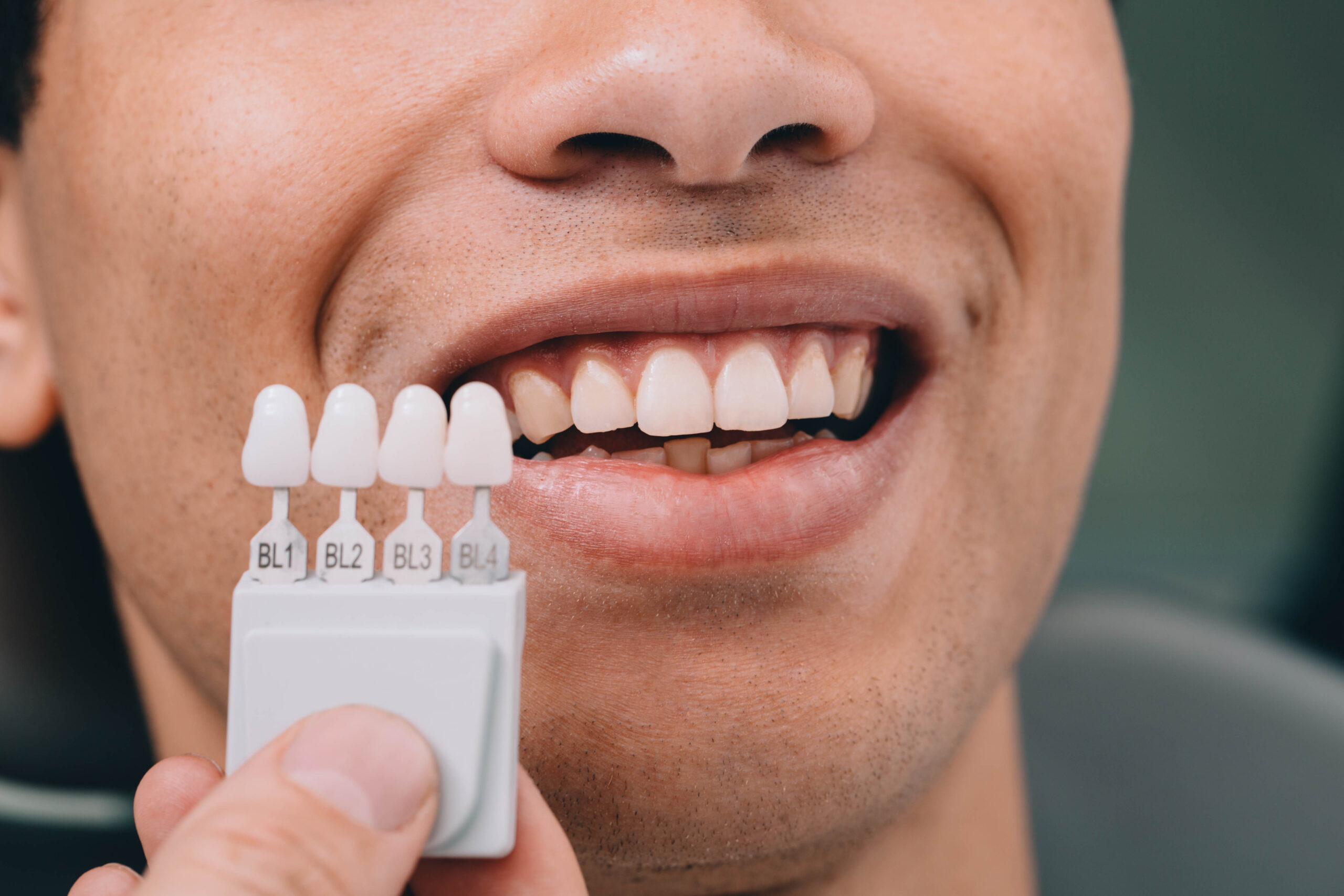Commonly known as veneers, these thin porcelain layers are used to treat chipped or worn teeth. Applied in place of a small amount of tooth surface, veneers help achieve the desired result, especially for patients with noticeable gaps between their teeth.
Even when teeth whitening techniques are used, if the desired result is not fully achieved, veneers can be applied to correct genetically discolored teeth, yellowing due to medication, misaligned teeth, or for patients dissatisfied with the appearance of their teeth, based on the dentist’s recommendation.
After a thorough examination by an expert dentist, veneers can be applied to patients of all ages if deemed necessary. The longevity of the treatment depends on the patient’s adherence to care guidelines. With regular check-ups and proper maintenance, veneers can preserve their original appearance for many years.
The short duration of the procedure and the ease of achieving an aesthetically pleasing result are the main reasons both dentists and patients prefer veneers. The procedure does not damage the natural structure of the teeth and provides a smooth, attractive surface.
Frequently Asked Questions
Are Regular Dental Cleanings Necessary?
The European languages are members of the same family. Their separate existence is a myth. For science, music, sport, etc, Europe uses the same vocabulary. The languages only differ in their grammar, their pronunciation and their most common words. Everyone realizes why a new common language would be desirable.
Do I Need to See a Dentist Even If My Teeth Feel Fine?
The new common language will be more simple and regular than the existing European languages. It will be as simple as Occidental; in fact, it will be Occidental. To an English person, it will seem like simplified English, as a skeptical Cambridge friend of mine told me what Occidental is. The European languages are members.

